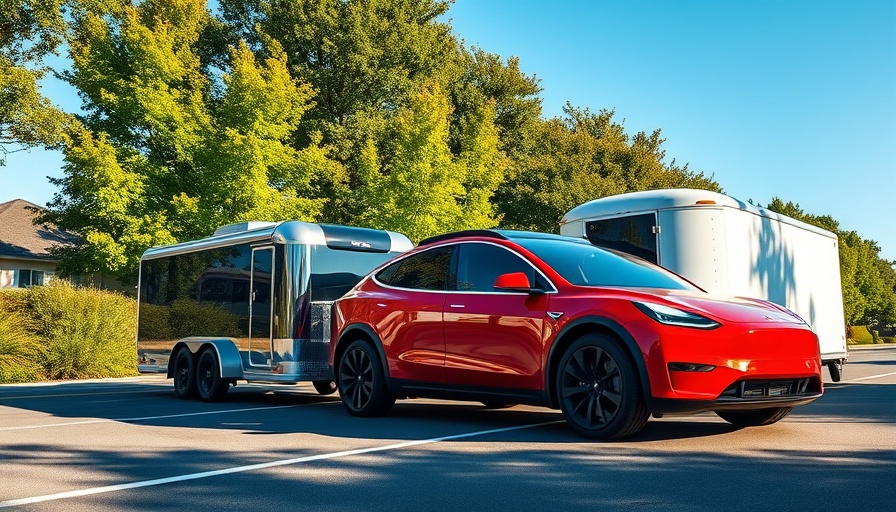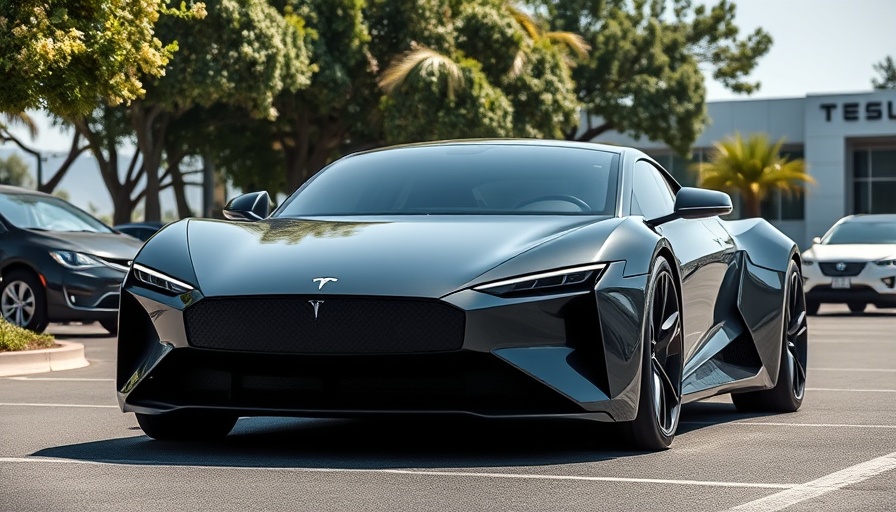
Tesla's Bold Move: From Unsold Pickup to Electric Marketing Marvel
In a surprising twist for Tesla, the much-anticipated Cybertruck is taking on a new role—serving as a mobile advertising billboard for the company's burgeoning Model Y. Following a lukewarm reception and disappointing sales figures, this innovative strategy aims to turn the tides for Tesla’s latest electric vehicle. Despite a staggering 2 million reservations at its launch, the reality has settled in with only about 46,000 Cybertrucks sold since production began, a far cry from the company's ambitious projections.
Unconventional Marketing Strategies
Elon Musk and Tesla have always shied away from traditional advertising methods, preferring instead to create buzz organically. The decision to have Cybertrucks tow a glass-cased Model Y through the streets of Temple, Texas, demonstrates this unconventional approach. By placing their latest SUV on display in a unique package, they’ve essentially crafted a mobile billboard that turns heads. This strategy not only puts the Model Y in the spotlight but also encourages spontaneous social media sharing, increasing its visibility.
The Bigger Picture: Tesla’s Evolving Sales Narrative
The current predicament for the Cybertruck reflects broader trends within the electric vehicle market, where demand can fluctuate and consumer preferences can shift rapidly. Challenges such as production delays and increasing competition from other automakers have contributed to the Cybertruck's struggles. According to auto industry experts, such fluctuations are not uncommon in markets undergoing rapid technology transitions. Analysts suggest that differentiating products, like the Model Y, could be key to recapturing consumer interest in the wake of the Cybertruck's rocky start.
What This Means for Future Car Buyers
The decision to showcase the Model Y in a glass capsule raises essential considerations for consumers looking at electric vehicles. Buyers today are more discerning than ever, seeking not just eco-friendly options but also innovative features and value for their investment. Buyers should closely observe how brands like Tesla are adapting their marketing strategies in real-time—a factor that could influence purchasing decisions.
Market Trends and Future Predictions
As Tesla attempts to rev up interest in its vehicles, the success or failure of such tactics will likely have implications beyond their immediate sales numbers. For instance, as trends like sustainability continue to shape consumer preferences, how companies market their offerings could shift significantly. This current Cybertruck marketing strategy could set a precedent for other manufacturers, showcasing how unconventional thinking can lead to increased brand visibility in a challenging market.
In conclusion, while Tesla may never publicly label the Cybertruck a flop, it’s clear that this one-time darling of the road is needing a creative rehabilitation. Shifting its role from a heavyweight truck to a glamorous marketing tool could just be the clever pivot the company needs. As consumers, staying attuned to how automotive companies respond in dynamically shifting markets gives us insight into future trends and enhances our decision-making power.
 Add Row
Add Row  Add
Add 




Write A Comment